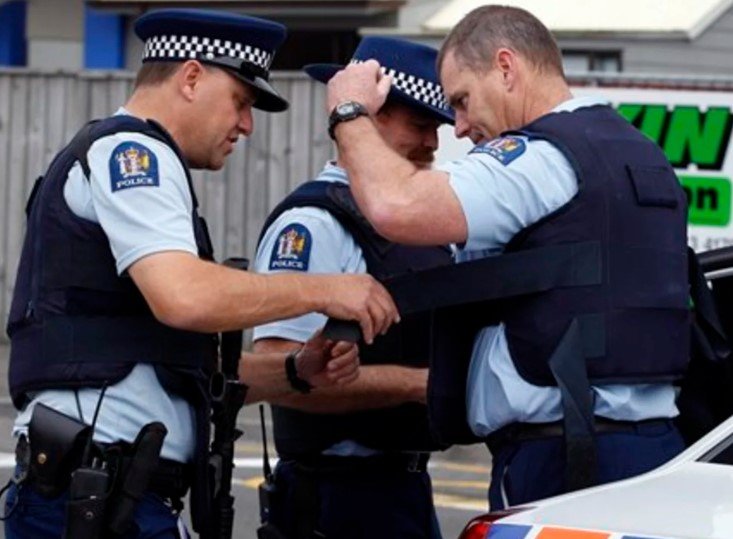A workplace performance tool born from elite sports psychology in New Zealand is now quietly making waves across global law enforcement circles — and may soon help reshape how police forces operate from London to Washington.
Vantaset, a tech startup founded by performance coach Craig Steel, is attracting serious international attention with a platform originally designed to help athletes withstand mental collapse under extreme pressure. But this isn’t about rugby scores or Olympic medals anymore. The same system that once helped All Blacks players handle crunch-time stress is now being tested to solve some of policing’s toughest human problems: burnout, disengagement, and trust.
From Locker Rooms to Lockups
It all started with a simple question: Why do top athletes choke? Steel’s answer wasn’t a motivational poster — it was a psychological framework built on seven years of research, millions in investment, and real-world results. Then came the pivot.
Steel assembled a high-performance team — including a former All Blacks manager and two Olympians — and turned his attention to everyday professionals, starting with his home turf.
More than 100 New Zealand organisations have implemented Vantaset’s PaaS (platform-as-a-service), including the NZ Police, whose transformation under the system is now legend. Not just internal metrics. The public felt it too.
One sentence: Crime reportedly dropped by over 20%.
And that made people outside New Zealand sit up.
Eyes from Across the Pond
Bernard Rix, Chairman of World Policing, wasn’t hard to convince. “Given the demonstrable impact Vantaset’s technology had on New Zealand Police,” he said, “we’re confident it can be implemented in other law enforcement agencies around the world.”
And they’ve signed on. World Policing — which gives governance and tech advice to thousands of agencies — inked a deal with Vantaset. So did an unnamed consulting firm that advises agencies like the FBI.
That’s not just a LinkedIn headline. That’s a signal.
Vantaset is now in active discussions with police chiefs and defence advisors across North America and Europe. A pilot rollout, especially in the U.S., appears to be on the horizon.
One sentence: The interest is real, and it’s growing.

Why the Buzz?
Steel isn’t selling software as much as he’s selling psychological stability — at scale.
“Globally, there’s a leadership and engagement crisis in critical agencies,” he said. “This is the most promising process they’ve seen to address it.”
Here’s what makes the platform different, at least on paper:
-
It’s not just digital dashboards. It’s a real-time performance system based on behavioural triggers and decision-making under pressure.
-
It’s built like a training regime, not an admin tool.
-
It’s delivered as a service, so teams don’t need to build or manage it themselves.
Steel says the results in New Zealand — including increased public trust, improved staff engagement, and measurable drops in crime — were what caught the eye of global partners.
That’s no small feat. Trust in law enforcement is a fragile thing. Rebuilding it? Even harder.
The Naira of Mental Health
It’s not hard to see why global interest is bubbling. Law enforcement agencies from Lagos to Los Angeles are stretched thin.
In many cases, the pressure isn’t just operational — it’s psychological.
“Think of it like currency devaluation,” one consulting partner put it. “Over time, the emotional value of these jobs has eroded. And unlike the naira or the peso, you can’t print more mental energy. You need systems that replenish it.”
Police forces worldwide are battling recruitment gaps, retention issues, and morale slumps. Officers are leaving early. Younger recruits aren’t coming in. And public perception is either hostile or indifferent.
If you zoom out, Vantaset isn’t trying to change how police operate. It’s trying to change how people inside police forces feel about their jobs — and how they function under stress.
That’s a big swing. And risky.
But if it works, the upside is enormous.
Legacy of the All Blacks
Steel’s origin story reads like a sports documentary. His research focused on “athlete capitulation,” that terrifying moment elite performers mentally fold.
By studying those collapses — the moments no one likes to talk about — Steel and his team figured out how to keep people upright when it matters most.
And that’s what they’ve built the software around. High-pressure, high-stakes resilience. Not theory. Application.
It’s been credited with helping secure more than 20 world titles for New Zealand athletes.
But the key isn’t medals. It’s predictability.
Steel says the platform allows people — not just athletes — to deliver their best under pressure, “on demand.” Not occasionally. Consistently.
If you think about law enforcement, that’s a pretty relevant skill set.
Could It Actually Work Everywhere?
Skepticism is fair. Every new tool sounds flashy until it’s rolled out into a precinct at 6am with short-staffed officers and broken vending machines.
But that’s where the PaaS structure helps. Agencies don’t need to rebuild infrastructure. Vantaset delivers the performance system as a managed service, with customisation based on the org’s structure and needs.
And most importantly, the platform isn’t just a one-way mirror of KPIs. It’s built to change behaviour. That means training, adaptation, and ongoing psychological conditioning.
Here’s how the pitch is landing in test markets so far:
| Feature | Benefit for Law Enforcement |
|---|---|
| Behaviour-driven architecture | Supports real-time decision-making |
| Athlete-tested resilience framework | Keeps staff mentally focused under duress |
| Platform-as-a-Service model | Easy deployment without heavy IT investment |
| Proven public sector record | Faster buy-in from leadership |
| Engagement-focused dashboards | Boosts morale and retention potential |
Still, trials are crucial.
Police work is messy. Stress isn’t linear. Culture matters. So how this scales across jurisdictions with different rules, unions, and political climates is still a big question mark.
But the appetite — at least at the executive level — is obvious.
Looking Ahead
Steel knows the stakes. He’s careful not to oversell.
“We’re not promising a miracle. But we do know what happens when systems support people under pressure — because we’ve measured it.”
For now, Vantaset remains a standout Kiwi export with ambitions far beyond the Southern Hemisphere. With pilot programs looming in the U.S. and UK, and endorsements from global policing bodies, it might just become law enforcement’s next big tool — built not in Silicon Valley, but in the shadow of a New Zealand fern.








